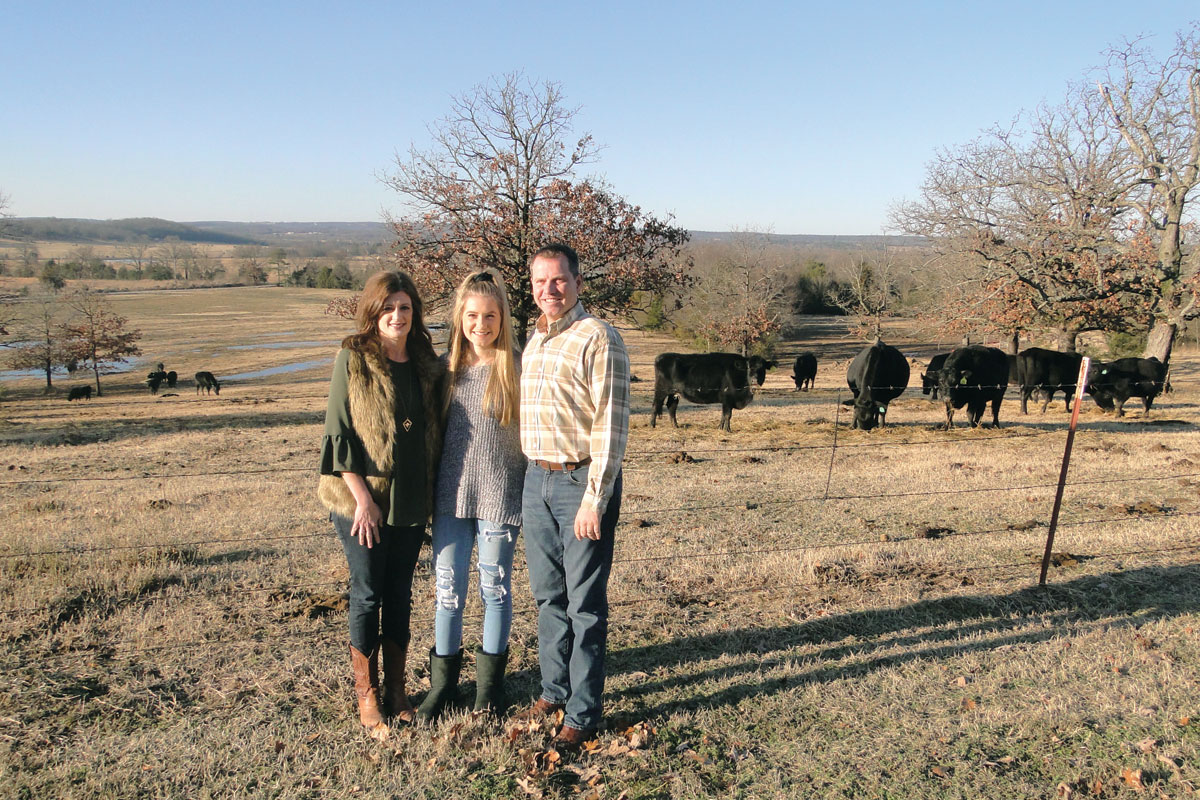
There is nothing ordinary about Todd Stephens and his wife, Melissa. Extraordinary would better describe their lives, their family and their farm. In fact, a close friend once called their farm “A little slice of Heaven.”
With their daughter, Morgan, 13, Noah, 10 (adopted from Vietnam) and Allie, 9 (adopted from China), the little house they called home in Lowell, Ark., was getting smaller every day and they had been looking for some land to build on and farm for some time. Todd recalled the day he saw a worn and dirty “For Sale” sign hanging on a fence post down a dirt road west of town.
“I called Melissa and told her ‘I found it!’” He drove her back out to look at the six acres that evening and “the rest is history," he remarked. Since purchasing the original acreage, the Stephens’ have purchased two other parcels that bordered theirs, giving them a total of 17 acres.
After the house was completed, the next logical step was to build a herd of cattle to help maintain the grass and provide an occasional meal for the family. But, after a near-fatal run-in with a steer, seriously injuring Melissa, they decided that the cattle had to go. A new rule was established for the Stephens farm. “Nothing over 200 pounds on the place and that includes me,” Todd laughed.
After some careful investigation, the Stephens’ decided that sheep would fit their ‘200 pound rule’ nicely since the live weight of a mature ewe usually ranges from 120 to 160 pounds. They placed a request on a local farm radio program, getting a response that same evening. The gentleman had some serious health problems and didn’t want to slaughter his flock so he called the Stephens family and they “rescued” the sheep. “I never even got to meet the man,” Todd said. “He died before we could come get the sheep, but his son was kind enough to bring them to us.”
All but two of the sheep in the Stephens’ flock are Katahdin, a breed originating on the Piel farm in north central Maine and named after Mt. Katahdin, the highest peak in the state. The breed is known for superior lamb crops and lean, meaty carcasses. They are highly fertile and exhibit excellent flocking instincts. They don’t have fleece so they do not require shearing. In fact, these sheep actually “shear” themselves by pulling. The hair consists of a fine, wooly undercoat with course outer hair and the pelts actually pull or rub off quite easily on a fence or a tree. Melissa said, “They are truly low maintenance and do very well in our climate. They are very hardy and adjust to the heat or the cold with no problem.”
In addition to the 30 ewes and 28 lambs, the family has Bandit, the donkey who was taken in exchange for Todd and Melissa’s ram, to ward off coyotes.
All three children help with feeding and watering the animals, gathering eggs from chickens they also keep, and various other duties at the farm. But, Melissa said, “Morgan is really the animal girl. She was out in the barn helping me pull lambs at 1:30 in the morning.”
Melissa looked at all the little lambs, calling them her ‘babies.'
Todd said he has thought seriously about finding a USDA-approved processor and selling veal and chops locally at various farmers’ markets. Strict quality control regarding the meat is an important issue to him. The only catch right now is finding that specific end-user or consumer. “I would want to sell the meat to the person that is going to consume it,” he said. “Back years ago, that’s the way people farmed.” Both Todd and Melissa have off the farm jobs; Todd is the General Manager for Farmer’s Mutual Insurance in Gentry, Ark., and Melissa is the Administrative Assistant for Fellowship of Christian Athletes of Northwest Arkansas.
They are quick to agree that the farm is an excellent way to teach their children about the important things in life. “Living on a farm definitely exemplifies the cycle of life, especially reproduction, death and rebirth,” Melissa said.
And this is a lifestyle they find fulfilling in more ways than one.
“Many times in scripture the Lord uses comparisons to sheep but, until I began tending to my own flock, I didn’t fully understand the accuracy of these inferences. For example: The reality of losing our way is in full force during lambing; bawling mamas looking for their crying lambs. Many nights I have stomped through the briars with a flashlight, looking for that single lost baby lamb. There is no better picture of innocence as a baby lamb. Shepherding, the sheep, the lambs. It’s all so scriptural,” Todd concluded.







